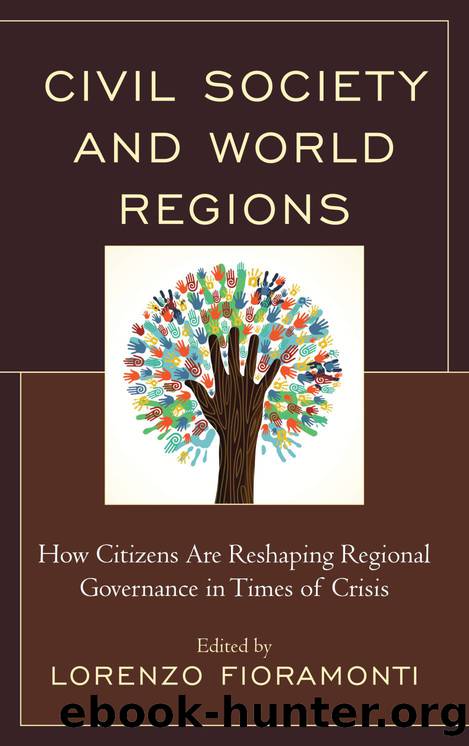Civil Society and World Regions by unknow

Author:unknow
Language: eng
Format: epub
Tags: undefined
Publisher: Lexington Books
Published: 2012-08-15T00:00:00+00:00
Functional Cooperation
Human Rights
ASEAN, which for so much of its history studiously ignored the abuse of human rights by its member states, now has a human rights body: AICHR. Inaugurated in October 2009, AICHR has ten representatives, one from each member state, and in its short history it perfectly captures the tension that exists amongst the ASEAN membership over the degree to which governance, in such a sensitive issue, can involve non-state actors. From the political compromise to secure a commitment to establish a human rights body, which can be found in The ASEAN Charter, to the negotiations over its Terms of Reference (ToR) and its ASEAN Human Rights Declaration (AHRD), AICHR confirms the centrality of state apparatus in the governance structure of human rights in ASEAN.[22] This is most tangible in the appointments of the representatives. The AICHR representatives are government appointees and, with the exception of Indonesia and Thailand, these are government officials. The representatives are accountable to their own government and they can be replaced at anytime by their own government. The notion that NGOs may act as a watchdog holding their governments to account is undercut by the ToR providing a mandate to promote human rights rather than to protect human rights. That is, with no investigative, evaluative or enforcement powers, or any early warning mechanisms AICHR can only seek to embed good practices within ASEAN initiatives, rather than actively protect human rights. Thus the ToR does not include the following provisions promoted by CSOs: (i) the ability to conduct country visits; (ii) the right to receive complaints, both from individuals and groups and initiate investigations; and (iii) the capacity to conduct periodic reviews of the human rights situation in all member states. The AHRD, adopted in 2012, has been criticised for weakening and eroding universal human rights by using the concept of âcultural relativismâ to suggest that the rights in the Universal Declaration of Human Rights do not apply everywhere (Article 7); stipulating that domestic laws trumps universal human rights (Article 6); and introducing limits to rights based on national security, public order and an ill-defined notion of public morality (Article 8).
In evaluating whether ASEANâs commitment to human rights is transformative, reformist, or legitimizing, the evidence from the policy documents indicate the latter. Perhaps more heartening has been the ability of CSOs to engage with the process that produced the ToR and the AHRD. In the case of the ToR, Indonesia stood alone in pushing for a protect mandate and it has been acknowledged amongst those responsible for drafting the ToR that SAPAâs support, both in terms of helping to buttress Indonesiaâs position and influencing the overall deliberations, was not inconsiderable.[23] With the ARHD, CSOs were invited to comment on drafts by the Thai, Indonesian, and Philippine AICHR representatives, and AICHR as a whole held two consultations with civil society. Of course the final documents revealed the limitations of that engagement. In a topic as sensitive as human rights that might be the best that can
Download
This site does not store any files on its server. We only index and link to content provided by other sites. Please contact the content providers to delete copyright contents if any and email us, we'll remove relevant links or contents immediately.
| Aviation | Campaigns |
| Personal Narratives |
The Radium Girls by Kate Moore(10921)
The Templars by Dan Jones(4197)
100 Deadly Skills by Clint Emerson(4089)
Rise and Kill First by Ronen Bergman(4026)
The Doomsday Machine by Daniel Ellsberg(3741)
The Rape of Nanking by Iris Chang(3529)
Killing England by Bill O'Reilly(3465)
Hitler in Los Angeles by Steven J. Ross(3449)
Stalin by Stephen Kotkin(3093)
12 Strong by Doug Stanton(3064)
Hitler's Monsters by Eric Kurlander(2740)
Darkest Hour by Anthony McCarten(2654)
Blood and Sand by Alex Von Tunzelmann(2614)
The Art of War Visualized by Jessica Hagy(2421)
Hitler's Flying Saucers: A Guide to German Flying Discs of the Second World War by Stevens Henry(2303)
The Code Book by Simon Singh(2221)
The Second World Wars by Victor Davis Hanson(2140)
Babylon's Ark by Lawrence Anthony(2077)
Tobruk by Peter Fitzsimons(2068)
